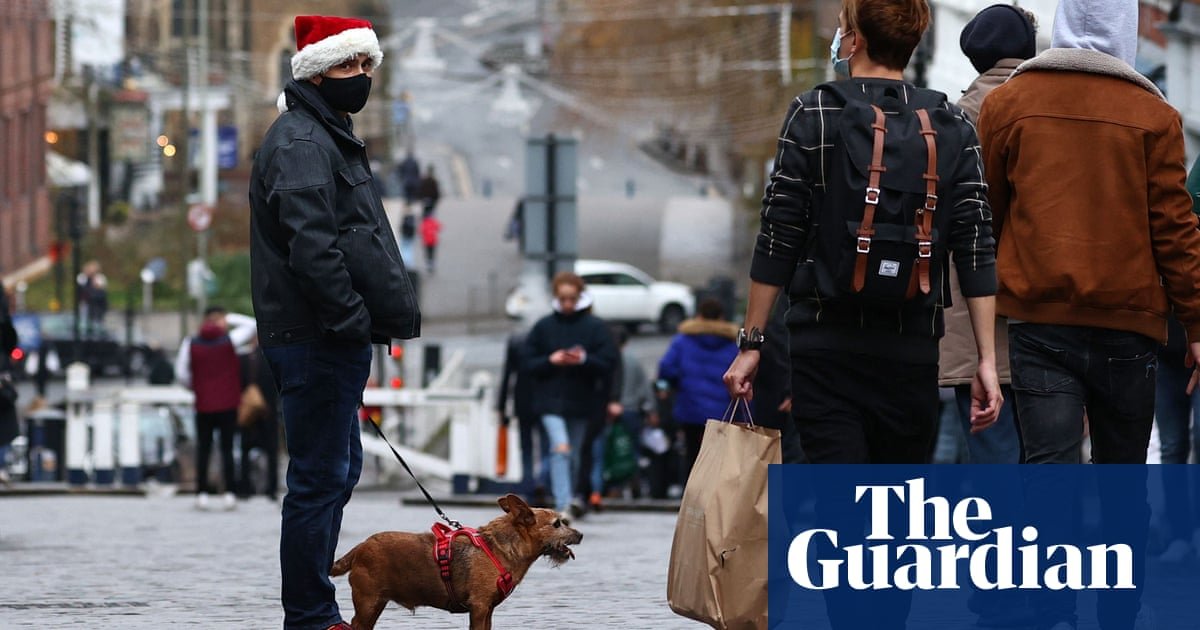Christmas Eve trade slumps in British high streets over Omicron risk – The Guardian
Central London hardest hit as shoppers avoid crowds to ensure they can enjoy the Christmas period with family
First published on Fri 24 Dec 2021 15.07 GMT
The number of Christmas Eve shoppers in British city centres has slumped as people stay in to avoid the risk of being infected with the Omicron coronavirus variant, data suggests.
Central London was hardest hit, with footfall down 30% compared with Friday last week, and 48% compared with Christmas Eve in 2019, according to data covering morning trading from Springboard. Footfall also fell by 10% week on week in other cities.
The government has so far held off on imposing new restrictions on England. However, shopper numbers have fallen dramatically as people avoid crowds to ensure they are able to see family at Christmas.
Footfall was lower than Christmas Eve 2019 across high streets, retail parks and shopping centres – although all categories were also stronger than Christmas Eve 2020, when large parts of England were placed in a surprise lockdown and other parts of the UK put restrictions in place.
Retail parks suffered the smallest declines this year, down only 7.1% compared with Christmas Eve 2019 – and up by nearly a quarter on last week. Numbers were up 6.7% across high streets overall compared with last week when including visits to towns.
“The increased activity in retail parks today will in part be due to trips for food and grocery products as the majority of retail parks have a food store,” said Diane Wehrle, Springboard’s insights director. “However, since the start of Covid, retail parks have consistently been more resilient in retaining shoppers as they are open spaces, with large stores which make shoppers feel safer and less nervous.”
The Omicron variant has severely hit trading for many shops during what is usually their busiest time of the year, and forecasts for the coming days are bleak.
Analysts at GlobalData said it expected Boxing Day sales online and in shops to be 10% lower than pre-pandemic levels, and 1% lower than last Christmas. Spending in stores is likely to be 23% lower than 2019, they said.
England’s chief medical officer, Prof Chris Whitty, last week advised people to cut down on socialising, while Wales and Northern Ireland have both announced a return to the “rule of six” for hospitality starting on Boxing Day. Scotland restricted sporting events and advised people to stay at home as well.
Retailers and hospitality companies will have to cope this Christmas without much of the emergency government support that helped them through a similar period in 2020. The government’s coronavirus job retention scheme, which supported the wages of furloughed workers, ended in September.
The chancellor, Rishi Sunak, last week announced a plan to spend £1bn on struggling hospitality and leisure businesses hit by the Omicron slump, but grants of only £6,000 a venue were criticised as insufficient to make up for the decline in business. Retailers were not included.



